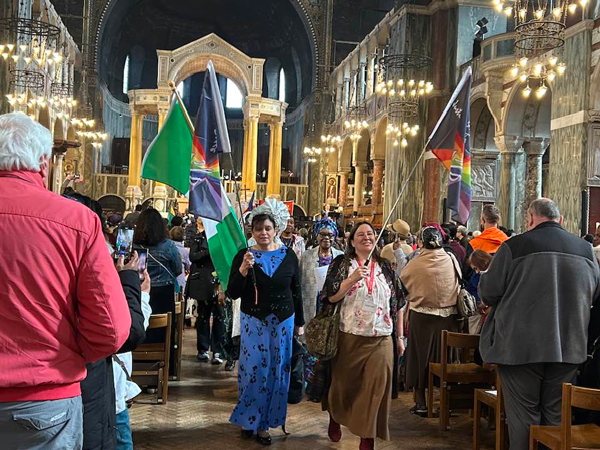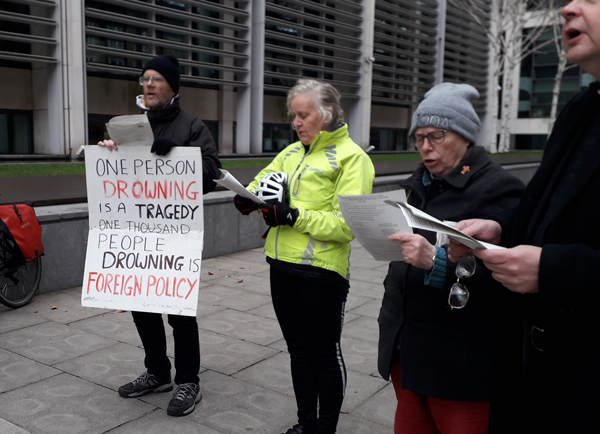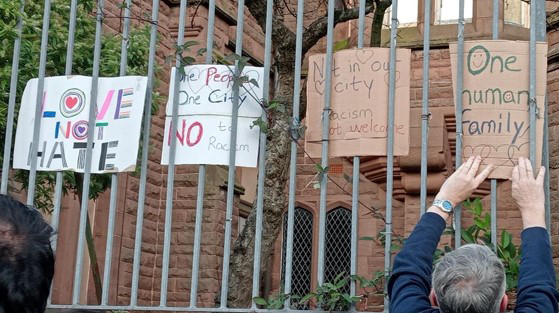Information on the theme
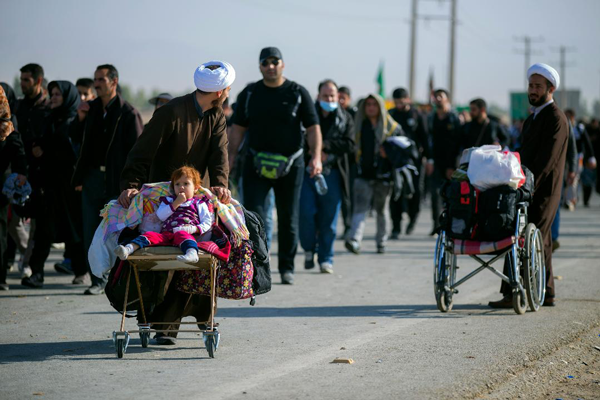
Syrians and Iraqi refugees (Wikimedia Commons)
What is a refugee?
The definition of a refugee is someone who: 'owing to a well-founded fear of being persecuted for reasons of race, religion, nationality, membership of a particular social group, or political opinion, is outside the country of his/her nationality, and is unable to or, owing to such fear, is unwilling to avail himself of the protection of that country'
(Article 1, 1951 UN Convention Relating to the Status of Refugees)
What is an asylum seeker?
'Asylum seeker' is a label used by government officials and others for people who are yet to be formally granted refugee status in their chosen country. This does not mean that they are not refugees, but that their status as such has not yet been recognised by the government. This is often because they are awaiting a decision on their asylum application. In the UK, until they receive a decision on their application a person seeking asylum does not have the same rights as someone granted refugee status, or a British citizen. For example, people seeking asylum aren't allowed to work.
The right to seek asylum is a legal right we all share. It isn't illegal to seek asylum, because seeking asylum is a legal process. It also isn't illegal to have been refused asylum - it just means that the government refused a person's application for refugee status on that occasion. In the UK, more than half of the people who are initially refused will ultimately be granted asylum after appealing the decision.
What's the difference between migrant and immigrant?
A migrant is a broad term for anyone who moves from one place to another, either within or across borders, for any reason and for any duration, while an immigrant specifically refers to someone who has moved to a new country with the intention of settling there permanently.
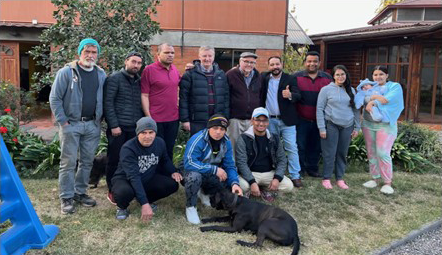
Columbans with migrants in Chile
International
How many global refugees and forcibly displaced people are there?
As of the end of 2024, 123.2 million people had been forced to flee their homes globally due to persecution, conflict, violence, human rights violations or events seriously disturbing public order.
Among them were nearly 42.7 million refugees, living outside their own countries. In addition, there were 73.5 million people displaced within the borders of their own countries and 8.4 million asylum-seekers.
Nearly three-quarters of refugees are hosted in low and middle income countries, often neighbouring their own country of origin.
At a time when more than 1 in every 67 people on Earth has been forced to flee, hope and solidarity are key for refugees to rebuild their lives.
Major hosting countries
Iran and Turkey host the largest number of refugees globally, with a significant portion of these individuals fleeing conflict in nearby regions. Turkey hosts more than 3 million refugees, primarily from Syria.
Colombia hosts 1.7 million refugees.
Germany ranks among the top refugee-hosting countries, particularly for those seeking asylum in Europe.
(United Nations High Commissioner for Refugees)
UK Asylum
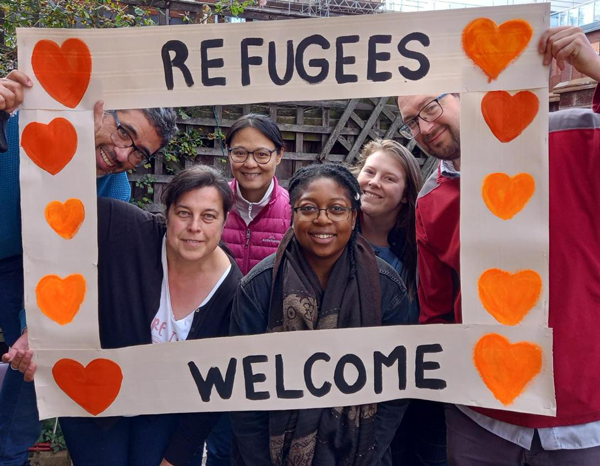
There were 85,112 asylum applications in the UK in the year to March 2025. The top five countries of origin of people seeking asylum were Pakistan, Afghanistan, Iran, Bangladesh and Syria. In terms of the number of asylum applications per head of population, the UK ranks 17th highest in Europe.
At the end of March 2025, 106,771 people seeking asylum were being supported by the UK Government. Of those, 32,345 (30%) were living in hotels, down 42% from the peak of 56,042 at the end of September 2023. People seeking asylum are banned from working and are provided from the government with £9.95 per person a week if their meals are provided with their accommodation, and £49.18 a week if not.
(Refugee Council)
Scotland hosts about 6,000 asylum seekers, the majority of them in Glasgow.
Small boats crossing the Channel
The UK's Home Office reported around 43,309 arrivals in small boats in 2025 to the end of June. There was an average of 54 people per small boat, and they included men, women and children. Between April 2024 and Match 2025, six in ten of small boat arrivals were from just five nationalities: Afghan (15%), Syrian (11%), Eritrean (11%), Iranian (11%), and Sudanese (8%).
A total of 77 people lost their lives attempting to cross the Channel between France and England in 2024, according to the French authorities.
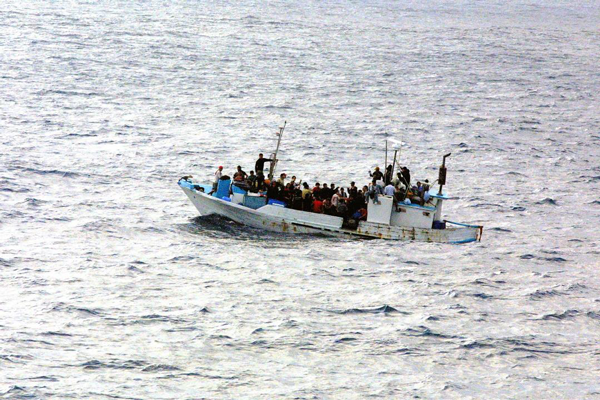
Refugees on a boat (Wikimedia Commons)
Since January 2018, three-quarters (75%) of small boat arrivals have been adult males aged 18 and over. Almost one-sixth (16%) of detected small boat arrivals have been children aged 17 and under. These proportions have generally been similar each year; however, in the first 6 months of 2025, only 10% of detected small boat arrivals were children.
Since January 2022, 95% of those who crossed the Channel claimed asylum in the UK, and a third are still waiting for a decision. Of those who did receive a decision, 51,361 (66%) were grants of protection.
(UK Government figures)
Are there many refugees and asylum seekers in the UK?
According to UNHCR statistics, only half a per cent (0.54%) of the UK's total population is a refugee or asylum seeker.

